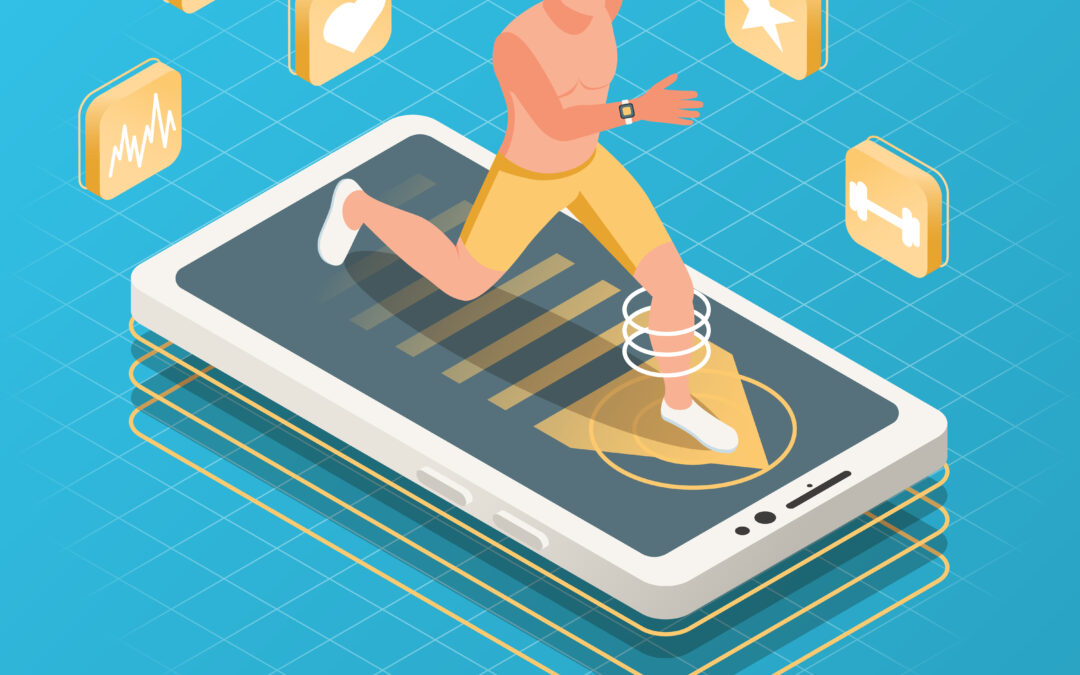AI-Based Fitness Apps: The Future of Fitness
In recent years, AI-based fitness apps have become an accessible and efficient alternative to traditional training methods. The benefits of modern AI-based fitness apps are numerous and scientifically proven. AI has brought customization, interactivity, and precision to fitness, making it more personalized and tailored to each user’s unique physical characteristics, health status, fitness levels, and training goals.
Customization and Interactivity
One of the key benefits of AI-based fitness apps is customization. AI helps create data-driven optimized training plans based on users’ unique physical characteristics, health status, fitness levels, and training goals. AI-powered solutions capture data on the pulse, intensity of the current workout, and other stats via smart wearables. They adapt workouts in real-time, ensuring that beginners and seasoned athletes alike get the most out of their programs. AI voice and text assistants provide support and motivation, acting as virtual coaches, guiding users through their workouts, helping them maintain proper form, and providing encouragement when needed.
Precision
The quality of personal programs generated by AI is bound to rise as next-gen wearables hit the market. New wearable devices will be able to analyze a wider range of data, including blood sugar levels, UV exposure, respiration rates, and muscle stretch, and introduce a wider range of devices, such as skin patches, rings, earbuds, and intelligent clothing. Smart home gym equipment, ranging from digital weight machines and spin bikes to smart mirrors and yoga mats, equipped with advanced motion sensors, built-in cameras, and touchscreen displays, provide even better control, interactivity, and immersion.
Motivation
Often, keeping track of progress is not enough, and an additional motivation boost is required. Small monetary rewards proved to be efficient as an incentive to keep to a healthy lifestyle, such as exercising more for different age groups. Modern AI-based solutions leverage transparent, fair crypto and NFT-based reward models. Those who accomplish specific targets in their daily fitness routine get rewarded with coins, points, which can be later exchanged for gym memberships, accessories, NFTs, and more, adding more motivation to training and cutting user expenses.
The Future of Fitness
The global fitness app market is growing, projected to reach $5.41 billion by 2030. AI-powered fitness apps are reshaping the industry with their ability to create customized, interactive data-driven workouts, valuable insights, data-driven recommendations, and rewards for accomplishing small milestones. As more projects embrace the technology and new, accessible smart devices appear on the market, these solutions will become even more flexible and less error-prone, helping us hit our fitness goals and live healthier, happier lives.
Data Privacy
Data privacy is a crucial issue that must be addressed. While some users may be hesitant to share personal information, the low quality and quantity of data available may limit the accuracy of personalized recommendations. As AI solutions gain popularity and trust, users will be incentivized to share more health data. AI-powered fitness apps must prioritize data privacy and security to maintain user trust and confidence.
Conclusion
AI-based fitness apps are the future of fitness, offering numerous benefits to users. AI-powered solutions provide customization, interactivity, precision, and motivation, ensuring that users get the most out of their fitness programs. With the global fitness app market projected to reach $5.41 billion by 2030, AI-powered fitness apps are reshaping the industry and helping us hit our fitness goals and live healthier, happier lives. As more projects embrace the technology and new smart devices appear on the market, AI-powered fitness apps will become even more accessible, flexible, and error-free, providing even more benefits to users.

